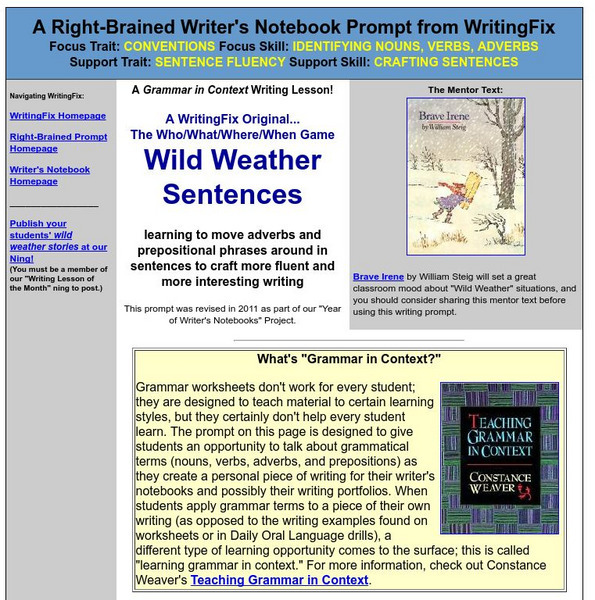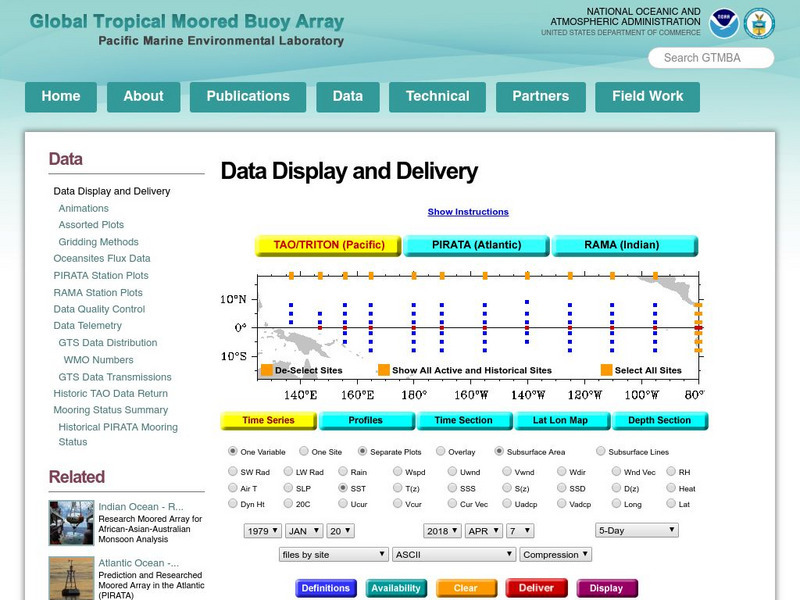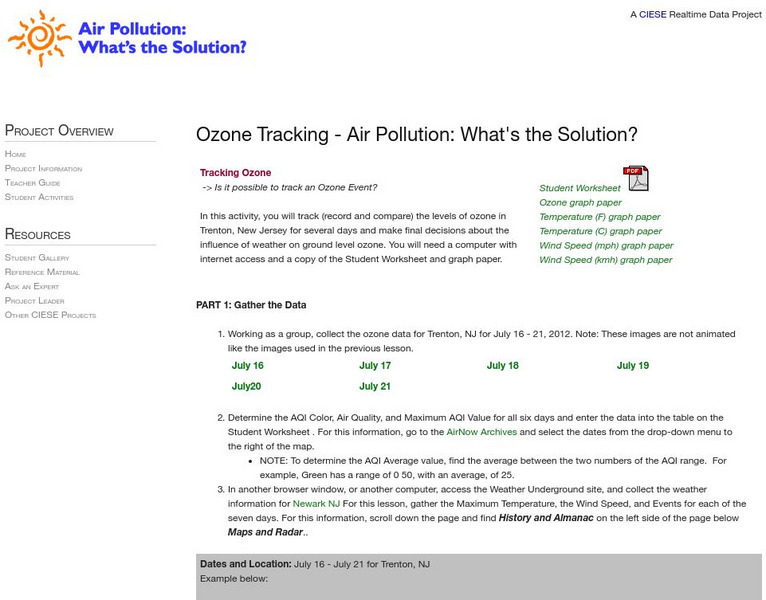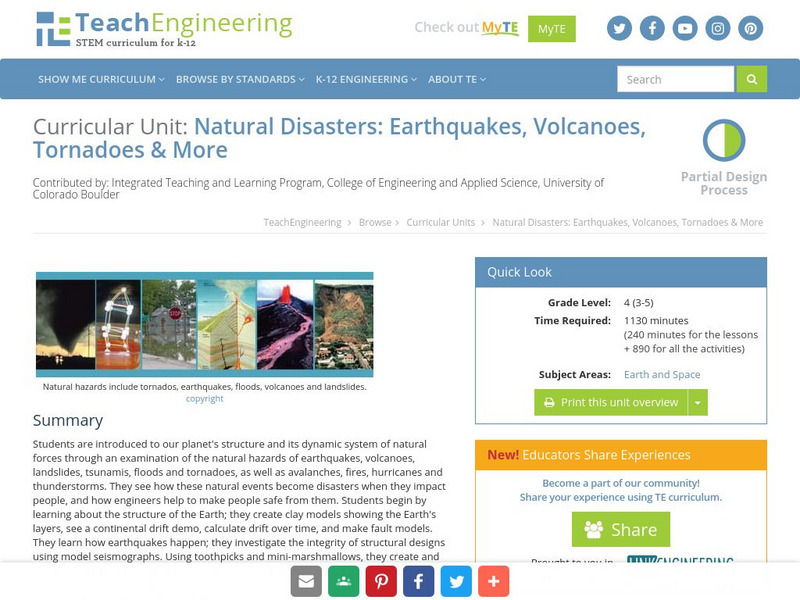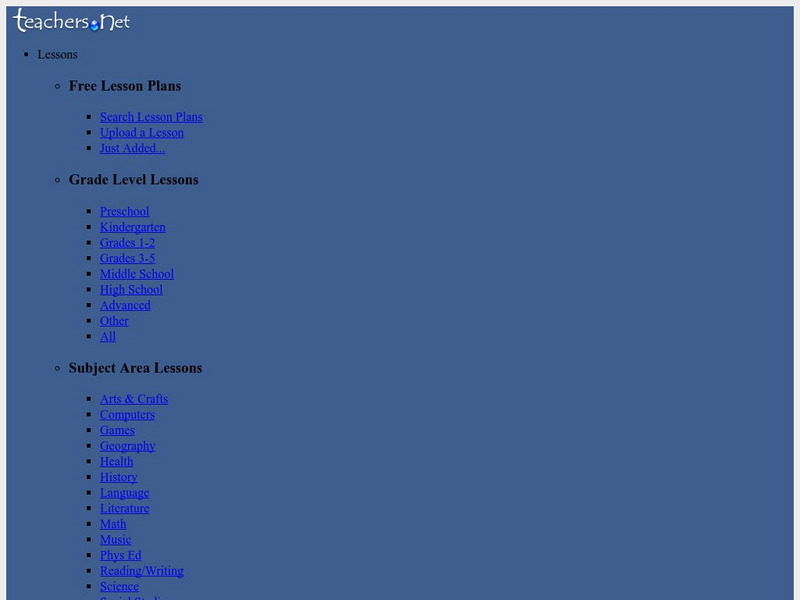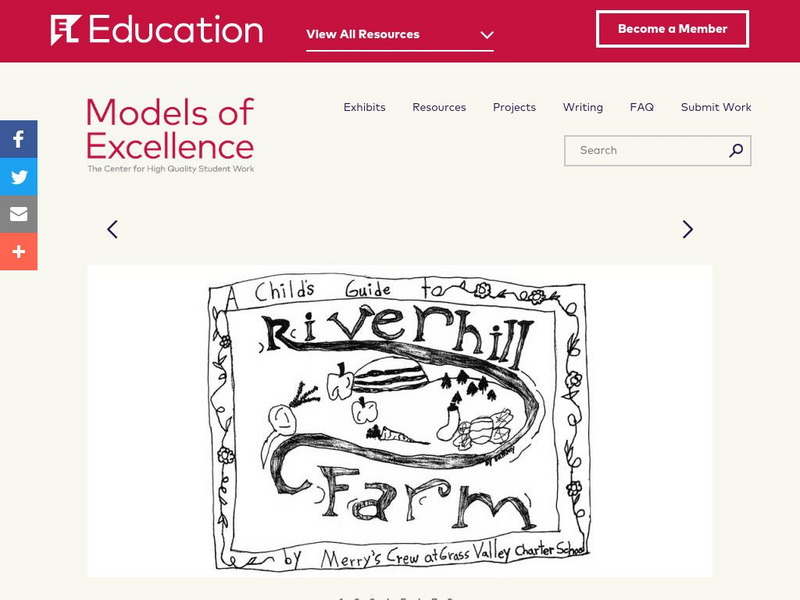Curated OER
I Can See and Feel the Change in the Seasons
Students use their senses to investigate the changes in the seasons. They discuss how the Earth moves around the sun and its tilt. They practice using new vocabulary and examining the different seasons.
Curated OER
Claude Monet Seasonal Painting
Students discuss and examine paintings of Claude Monet. They examine the style he uses and then create their own painting based on the seasons. They also discuss the difference in the four seasons.
Curated OER
The Malnourished Paragraph
Students revise writing to improve style, word choice, sentence variety and subtlety of meaning after rethinking how questions of purpose, audience and genre have been addressed. They recognize the importance of details in writing.
Curated OER
Natural Refrigeration
Students build a refrigerator that does not require electricity. For this environmental science lesson, student consider desert dwellers of Africa who have no access to electricity. Students use flower pots, sand and water to study the...
Curated OER
Time and Cycles - Dendrochronology
Learners investigate the lives of trees by examining ring cycles. In this plant life lesson, students identify the field of study known as dendrochronology and discover its history. Learners investigate a simulated tree ring...
Curated OER
The Log Book of a Connecticut Slave Trade Ship
Seventh graders investigate the slave trade. In this Middle Passage instructional activity, 7th graders read excerpts of ship logs from Connecticut Slave Trade ships. Students respond to the provided analysis questions based on the...
Curated OER
Boundaries
Students identify and analyze the boundaries which exist between urban and rural, wildness and country and among rural areas, country, town, and city. Students actively participate in planning, obtaining materials, setting goals and...
Curated OER
Life Without Flight
Students keep a journal for an intire week recording their observations of the ways aircraft affect society, The students discuss their findings and categorize them into areas such as military, commercial, research, and so on.
Other
Esc 20: How Did Weather Change the Lives of Thousands of Texans? [Pdf]
For this lesson unit, students learn about how the Great Hurricane of 1900 and the Dust Bowl in the 1930s affected Texas, then research a major weather event for a project.
Writing Fix
Writing Fix: The Who/what/where/when Game: Wild Weather Sentences
In this lesson, Teaching Grammar in Context by Constance Weaver provides foundational information for this lesson. Brave Irene, written by William Steig, is used as the mentor text of this lesson. Students will develop sentences with...
NOAA
Noaa: National Severe Storms Lab: Thunderstorm Climatology
This page provides information on climatology in relation to severe thunderstorms.
NOAA
Noaa: Pmel: Tropical Atmosphere Ocean Project: Tao/triton Data Display
Resource features real-time data from moored ocean buoys for improved detection, understanding, and prediction of El Nino and La Nina with diagrams.
University Corporation for Atmospheric Research
Ucar: Unidata: Conventional Weather Reports
This resource talks about how the stations report their information. Several examples of how different universities compile the information are provided.
Center for Innovation in Engineering and Science Education, Stevens Institute of Technology
Ciese Real Time Data Projects: Air Pollution: Tracking Ozone
In this activity, you will monitor the levels of ozone in Trenton, New Jersey for several days and make final decisions about the influence of weather on ground level ozone.
TeachEngineering
Teach Engineering: Natural Disasters
Students are introduced to our planet's structure and its dynamic system of natural forces through an examination of the natural hazards of earthquakes, volcanoes, landslides, tsunamis, floods and tornados, as well as avalanches, fires,...
Science Buddies
Science Buddies: It's Raining, It's Pouring: Chemical Analysis of Rainwater
Here is an interesting project that could be approached from several different scientific angles: Environmental Science, Weather & Atmosphere, Chemistry, or Plant Biology. You can probably think of your own variations to emphasize...
Teachers.net
Teachers.net Lesson: Natural Disaster Bloom's Taxonomy
Here is a lengthy activity for student to work on while learning about floods, hurricanes, tornadoes, and earthquakes. Students will enjoy researching these disasters and applying what they have learned to a project.
NOAA
Noaa: Photo Library: Dimmitt Tornado, Photo #1
The National Oceanic and Atmospheric Administration provides a photo library of severe weather formations. This photograph is of a tornado captured in Dimmitt, Texas on June 2, 1995.
EL Education
El Education: A Child's Guide to Riverhill Farm
This is a child's guide or manual designed for Riverhill Farm. These 3rd and 4th grade students were studying about watersheds and farming; they visited the farm several times and learned various aspects of farming. The guide includes an...
NOAA
Noaa: Photo Library: Dimmitt Tornado, Photo #2
The National Oceanic and Atmospheric Administration provides a photo library of severe weather formations. This photograph is of a tornado captured in Dimmitt, Texas on June 2, 1995.
NOAA
Noaa: Photo Library: Dimmitt Tornado, Photo #3
The National Oceanic and Atmospheric Administration provides a photo library of severe weather formations. This photograph is of a tornado captured in Dimmitt, Texas on June 2, 1995.








![Esc 20: How Did Weather Change the Lives of Thousands of Texans? [Pdf] Lesson Plan Esc 20: How Did Weather Change the Lives of Thousands of Texans? [Pdf] Lesson Plan](https://static.lp.lexp.cloud/images/attachment_defaults/resource/large/FPO-knovation.png)
